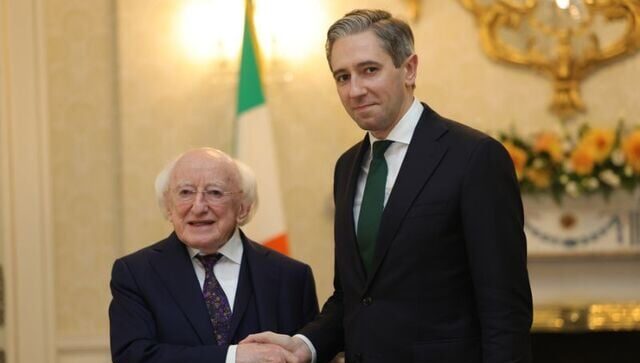Lucy Simpson
A general election has been called in the Republic of Ireland (ROI). A short three-week campaign will decide the next Government with voting across the country on the 29th of November.
Under Irish law once the Dail (parliament) is dissolved an election must be held within 30 days but in reality the date for the election had been anticipated by everyone and that meant that most campaigns had already started.
The three parties that formed a coalition after the last general election in February 2020 were Fine Gael (FG) Fianna Fail (FF) and the Green Party, all of which are pro-big business and pro-capitalist and in favour of the so called free market.
The coalition governed over serious housing, health and educational crises over four and a half years with no significant progress made on any issue.
In 2020 FF won the most seats (38) but this was far short of the number needed to form a government. They entered negotiations with FG and the Green Party, a coalition deal was reached, and they took office in June 2020.
The ROI has been historically dominated in the Dail by FF and FG, the two parties which formed from a split in Sinn Fein over the 1921 Anglo-Irish Treaty which led to the partition of Ireland and a bloody civil war.
Whilst FG have traditionally been seen as the more conservative party compared to FF, in modern day Ireland they are seen by many as one and the same. They are both centre right parties and their identities have merged, and differences blurred.
The main opposition party is Sinn Fein (SF). Unlike FF and FG, it organises and stands on both sides of the Irish border. It is currently the largest party in the North of Ireland (Northern Ireland) and hold the first Minister portfolio. In the 2020 ROI election SF made significant gains winning 37 seats compared to 38 for FF and 35 for FG. If SF had stood more candidates, it would have won even more seats. SF was prepared to go into coalition with FF, but such was the distrust of FF towards SF instead they negotiated a deal with their 100-year-old enemy FG.
In the several years since, SF have been able to build support as the main opposition party. It rose in the opinion polls -at one point consistently scoring over 30 percent- and there was much talk of the party entering, or even leading, the next government. Recently SF have declined in support, and this was reflected in the local elections in June this year, when they ran a confident campaign with 335 candidates and only took 101 seats. This was seen as a setback for SF after running high in opinion polls for almost four years.
SF are no threat to the capitalist class in the South of Ireland as they will uphold the system. The party has been rocked by a series of scandals North and South (see article here) and this is an important backdrop against which they face the electorate in the South of Ireland.
It is not clear how the election will pan out as anything is possible in this volatile period in Ireland and internationally. People Before Profit-Solidarity, a left-wing alliance, will stand in 41 constituencies, and hopes to win up to ten seats (it currently holds 5). A strong vote for the left could help build the forces necessary to challenge the status quo.













